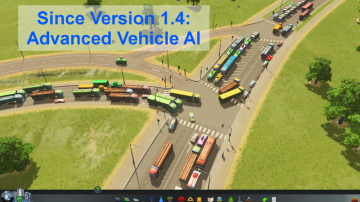

Both sides were reduced to ruin, with the Commonwealth fragmenting into bickering nation-states, fighting over what resources remained within its reach. The War would come to an end in 2060 when the Middle Eastern oil fields ran dry. The United States government initiated Project Safehouse in order to construct great underground Vaults to protect its population, although the project was rife with embezzlement, corruption, and mismanagement, starting with the method of financing them (junk bonds) and ending with the number of Vaults constructed (just 122, capable of protecting less than a tenth of a percent of the United States' government).

The war would rage on for the next years, with nuclear exchanges that occurred in the Middle East after Tel Aviv's destruction in December 2053 provoking a global nuclear scare and raising fears of global thermonuclear war. The war caused oil prices to skyrocket, bankrupting many smaller nations, and caused the United Nations to implode just three months after the European Commonwealth declared war on the Middle East. Long dependent on oil imports, European military units deployed to the Middle East in April 2052, starting an almost decade-long war for control over the region's oil deposits. The European Commonwealth followed the United States' example when it replied to price hikes by oil exporters in the Middle East with military action. Ironically, it did little to prop up the economy of the United States, with the energy crisis hitting the nation hard, entering the popular consciousness after a television documentary revealed withered husks of Texas oil fields sitting idly, with no oil to pump.

In hindsight, this was the first in a chain of events that engulfed the world in war. Citing political instability and pollution as a threat to national security, the United States' intervention ensured that petroleum would continue making its way north, at Mexico's expense. The United Nations soon proved powerless to stop hostilities, as the United States invaded Mexico in 2051, after a string of economic sanctions destabilized the country. When demand outstripped supply, the situation started to deteriorate rapidly, leading to a resurgence of nationalism and protectionism. The latter was an essential ingredient for nuclear fission, which provided a substantial amount of electricity worldwide. The former provided not just fuel for vehicles (gasoline, diesel, and other forms of refined fuel), but also plastics, fertilizers, medicine, and countless other applications. The roots of the Resource Wars lie in a globally unsustainable economy that heavily relied on petroleum and uranium.


 0 kommentar(er)
0 kommentar(er)
